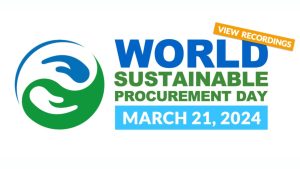At the dawning of the next decade and as the recession in South Africa begins to gradually fade away, many organizations may tentatively consider appointing more staff. The recruitment market changed from a scarcity of skills on the open market in early 2008 into a relative glut during 2009, with many people sitting tight in their current jobs waiting for an improvement in the economy. Alan Low of Purchasing Index (PI) discusses the challenges the permanent recruitment procurement process faces in this month’s SmartProcurement.
“In PI’s view the South African economy is likely to suffer from a scarcity of skills in many disciplines for years, if not decades, to come. Attracting and securing necessary talent to drive business growth could, therefore, be a key performance criterion in many industry sectors.
“PI’s benchmarking reports into the recruitment process have revealed many shortcomings in the way organisations replenish talent, namely:
1.Businesses often let management and staff leave before they had even advertised for their replacement, thereby ensuring that valuable intellectual property (IP) was not transferred.
2.Organisations often advertise internally before looking externally for candidates, extending the recruitment process.
3.Recruitment processes were often painfully slow, with many sequential interviews that could take months to complete. This inevitably gave the impression of indecision and did very little to enhance the organisation’s image as “an employer of choice”.
4.Procurement departments’ desire to formulate preferred agreements with a few agencies, inhibited the search for the best candidate and such agreements were therefore often ignored by the Business Units.
5.Procurement often negotiated agency rates to such a low level that prime candidates were often not offered to those organisations.
Making some assumptions regarding internal costs, the chart below shows how costs can mount up depending on the number and length of interviews conducted before a placement is made.
Note: Assuming an average interview cost per hour of R3 000: executives and HR personnel.
The extent of this is largely dependent on how thoroughly agencies conduct their interviews, screen candidates and understand the requirements of the position. When looking at recruitment costs, the effectiveness of agencies and internal costs play a crucial role. What is your organisation’s recruitment cost performance?
For Procurement to provide relevant and effective commercial arrangements with recruitment agencies, PI believes that the whole recruitment process needs to be managed throughout an organisation, involving the Operational Business Units, HR and Procurement. This will help to increase efficiencies and manage costs as a whole, rather than focusing on surface costs, such as rates, to the detriment of the total cost of acquisition of new staff.
If you would like to participate in continuing recruitment benchmarking and become a member of a growing network of professionals exchanging information on recruitment best practice as it evolves, please email Alan Low at alan@pibenchmark.co.za.


























